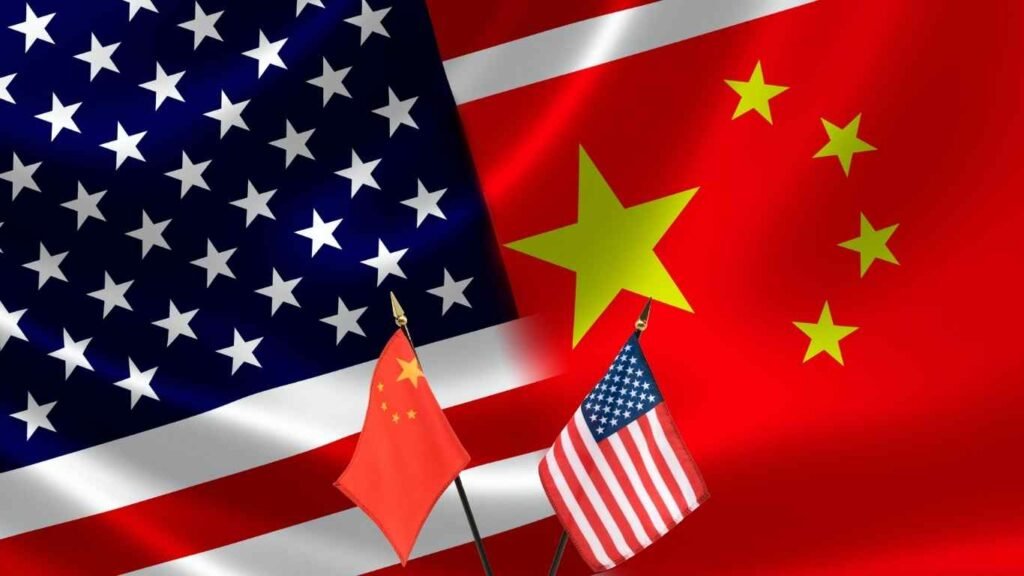A Diplomatic Dispute With Deeply Personal Consequences
As geopolitical tensions between the United States and China continue to escalate, two American citizens have reportedly become the latest pawns in a growing diplomatic standoff. According to U.S. officials, both individuals are currently subject to an “exit ban” imposed by Chinese authorities, preventing them from leaving the country.

While they are not in custody and retain some freedom of movement within China, the ban has upended their lives. Once engaged in longstanding business and cultural exchanges, these Americans now face indefinite separation from their families back home — their personal lives caught in the crossfire of international policy.
What We Know About the Exit Bans
The U.S. State Department has confirmed that two American citizens have been prohibited from exiting China, though their identities have not been made public to protect their privacy. Both individuals are believed to be business professionals with deep ties to the country and no known criminal charges against them.
Chinese officials have yet to provide a formal explanation for the travel restrictions. However, U.S. sources familiar with the matter suggest that the bans may be tied to ongoing legal or commercial disputes, and possibly serve as a response to recent U.S. actions — including investigations involving Chinese nationals and heightened trade scrutiny.
“The present situation looks like a move of a retaliatory nature,” said a senior U.S. State Department official who spoke under the condition of anonymity. “It reflects a concerning pattern in which individual freedoms are used as leverage in broader diplomatic contests.”
The Human Toll Behind the Headlines
For the individuals affected, the implications go far beyond politics. “He went to China to work and build bridges, not to become part of a geopolitical game,” said a close friend of one of the Americans. “His children are waiting for him, but he cannot promise when — or if — he’ll come home.”
Though not detained, the restrictions are deeply disruptive. Legal experts describe these “exit bans” as a form of soft detention — a tactic increasingly employed by Chinese authorities in recent years. Human rights organizations have long raised concerns about their use in unresolved legal cases, trade disputes, and political signaling.
Geopolitical Context: Rising U.S.–China Tensions
This latest development follows a series of mounting pressures in the U.S.–China relationship, including:
- Increased military activity in the Taiwan Strait and South China Sea
- Ongoing cybersecurity allegations and investigations
- Sanctions targeting Chinese technology companies and officials
Many foreign policy analysts see the exit bans as part of a broader pattern. “This is part of a dangerous trend,” said Zhang Mei, senior fellow at the Asia Policy Institute. “Human lives and liberties are being reduced to bargaining chips in a high-stakes political contest.”
U.S. Government Response: “Deeply Concerned”
In a formal statement, the U.S. State Department expressed serious concern about the situation:
“The United States strongly opposes the use of coercive measures against American citizens. We are in direct contact with the individuals and are pursuing all appropriate channels to secure their safe and swift return.”
While diplomatic negotiations are ongoing, the public nature of the case has prompted a cautious approach by U.S. officials, who aim to avoid further escalation while maintaining pressure for a resolution.
A Family’s Plea: “We Just Want Him Home”
Back in the United States, the families of the two individuals remain in emotional limbo. Birthdays are missed. Conversations are brief and cautious. In a letter sent anonymously to a news outlet, one family member wrote:
“Politics is not important to us. All we want is for our father to return home. This is about a scared and stranded person — not about sanctions or trade wars.”
Conclusion: When Diplomacy Turns Personal
Global politics often play out in headlines and press conferences, but their impact can be deeply personal. As Washington and Beijing navigate an increasingly complex and contentious relationship, the fate of two American citizens now hangs in the balance — far from home, caught between two world powers.
Their case underscores a troubling reality: when diplomacy fails, it is often the innocent who pay the price.

